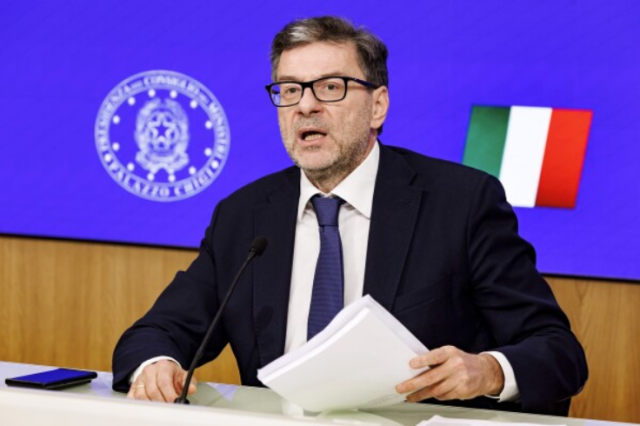Italy has reportedly faced severe criticisms over the extension of its surrogacy ban internationally.
The country has also reportedly criminalised citizens who travelled abroad for surrogacy, a move condemned by critics as “medieval” and discriminatory toward same-sex couples.
This new measure extends the existing surrogacy ban enacted in 2004 and was pushed by Premier Giorgia Meloni’s far-right Brothers of Italy party and their conservative coalition partner, according to the League which claims it safeguards women’s dignity.
After a seven-hour debate, the Senate passed the bill 84-58, following the Lower House’s approval last year.
Italians pursuing surrogacy in countries like the United States or Canada, where it is legal, could face up to two years in prison and fines reaching 1 million euros ($1.1 million).
While the surrogacy ban applies to all couples, advocates for same-sex parenting debated that it disproportionately affected gay families in a nation facing record-low birthrates, where only heterosexual couples were permitted to adopt.
Same-sex marriages are also illegal in Italy, and LGBTQ+ couples continue to fight for parental rights for non-biological parents.
Opponents of the law, including several lawmakers and LGBTQ+ activists, protested outside the Senate, holding placards with inscriptions: “Parents, not criminals.”
Opposition lawmaker, Ricardo Magi, during the protest said, “When protectionism prevails, a social phenomenon is not erased.
“It is simply relegated to a dark area, which the law doesn’t reach. In that case, it’s easier for exploitation, abuse, and rights violations to prevail,” he stated.
Cristiano Giraldi, the father of two 10-year-old children born via surrogacy in the U.S., expressed disappointment, saying, “We are very saddened because Italy has once again missed an opportunity to demonstrate that it is a country in line with what Europe and the world are.”
The Catholic Church has vehemently opposed surrogacy in Italy and abroad, with Pope Francis advocating for a universal ban and condemning the “commercialisation” of pregnancy.
However, the Vatican’s Doctrines Office has clarified that same-sex parents who use surrogacy can have their children baptised.
While commercial surrogacy contracts, including protections for mothers and legal representation, are common in the U.S., countries like Europe, including Spain and Italy have it banned.




















